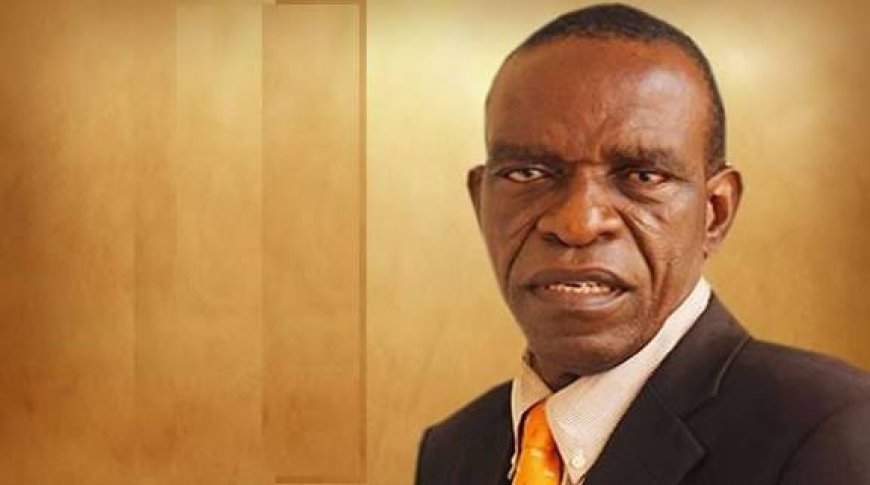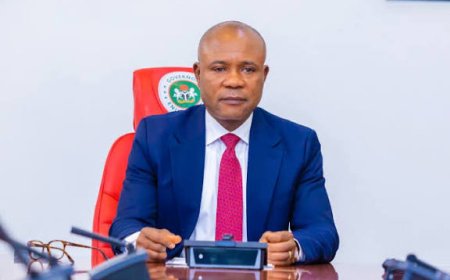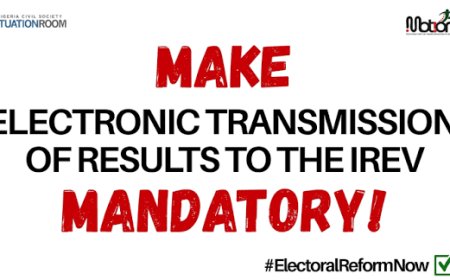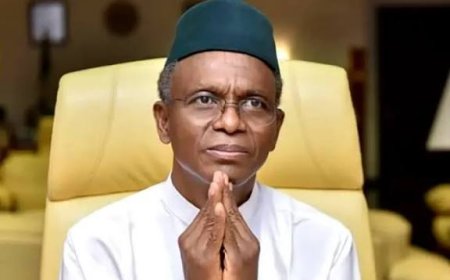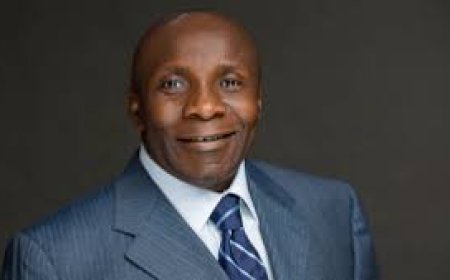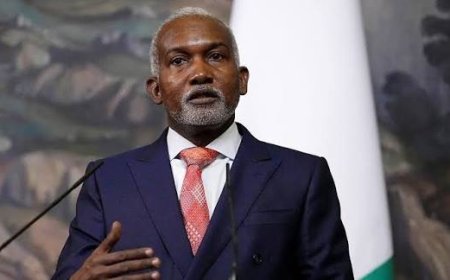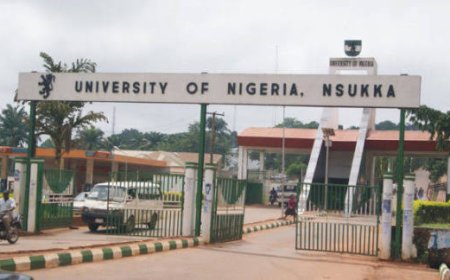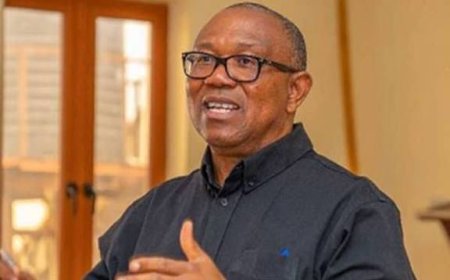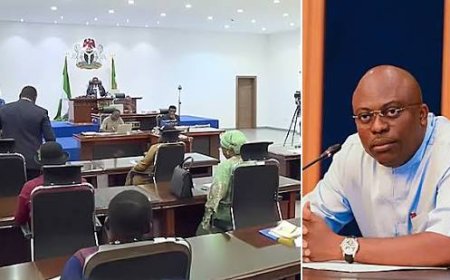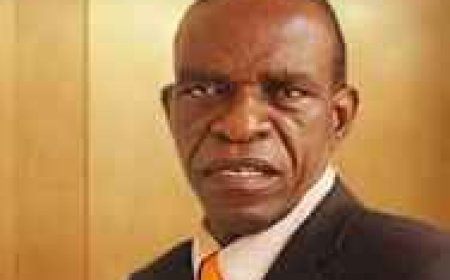Political Musing of Thursday September 25 2025
By Ike Abonyi
“ _Let's stop the habit of wishful thinking and start the habit of thoughtful wishes.”_ – Mary Martin
The ‘Wall of Jericho,’ in this context, symbolises the barriers and strongholds that can be overcome with faith and determination. In Nigeria, these obstacles reflect the challenges that hinder our progress as a nation—a desire for these walls to come down, just as they did in the biblical story, allowing the Israelites to seize their promised land.
After the Arab Spring of December 2010, many Nigerians hoped for similar transformations in their country. The turbulent arrival of Captain Ibrahim Traoré in Burkina Faso in October 2022 sparked aspirations for change in Nigeria. Likewise, the Napel September 2025 Revolution, driven by a Gen-Z movement against social media bans, raised hopes for action and reform, even worrying those in power.
However, for those of us who have witnessed Nigeria's political landscape as adults and practising journalists for more than half of our nation's past 65 years, we understand that significant change requires more than just desire; it demands a conducive environment and unity among the people. The challenges we face are complex and deeply rooted in our societal dynamics.
The dramatic collapse of those biblical walls was not instantaneous; it required the Israelites to march around Jericho for six days and circle it seven times on the seventh day, culminating in shouts and trumpet blasts that led to their downfall.
Nigeria is endowed with abundant resources and possibilities that could enable its citizens to thrive, yet many feel these opportunities remain out of reach. This week, let’s reflect on the reasons why achieving the benefits akin to what the Israelites experienced might be more challenging in Nigeria, and why Nigeria’s own Jericho Wall is falling.
To reach its destination of Eldorado, significant sacrifices have to be made, including shedding the blood of martyrs required in a revolution, as the case in those nations we now envy. To achieve true change, the people must be pushed to the wall, and their reaction will be spontaneous, not premeditated. At that moment, factors such as religion, tribe, geography, or gender will no longer matter. The driving forces will centre around the need to cleanse society of its injustices. It will become a matter between "us" and "them."
Who are "us"? The poor, the deprived, the downtrodden, and the oppressed are always in the majority. And who are "them"? They are the elite class, the rich, the bourgeois, and those who benefit illegally from their positions while supporting the atrocities committed against the marginalised.
At this stage, there won't be an organised military or police force in the battle; people from all professions will be involved. A leader will naturally and impulsively emerge from among them.
However, for such a movement to occur, several conditions must be met. The people, including the poor, must possess high moral integrity. The Biblical account of the fall of the Wall of Jericho illustrates this. The wall did not collapse merely because the Israelites marched around it; it fell because the people strictly adhered to the divine instructions given to Joshua by God. As it is stated: "Then the LORD said to Joshua, ‘See, I have delivered Jericho into your hands, along with its king and its mighty men of valour. March around the city with all the men of war, circling the city once; do this for six days. Have seven priests carry seven rams’ horns in front of the ark. Then on the seventh day, march around the city seven times, while the priests blow the horns.’” (Joshua 6:2-4) When the assembly followed these instructions, “the wall collapsed” (Joshua 6:20). The success of this event highlights the importance of divine command and the people's obedience. Faithful adherence to God’s directions was the key factor in this historic episode.
After a 30-month civil war that claimed the lives of over three million people, have Nigerians learned anything? Have we embraced justice? As a nation, are we behaving as if we are committed to "never again"? What does justice mean for us? Do we have our own definitions of justice, equity, and fairness? How central is God's will in our lives?
In our country, do we have a unified voice for what is good? Does the idea of "good" mean the same thing to someone from the north as it does to someone from the south? Even within religions that claim to worship the one true God, do Christians and Muslims have a common understanding of what is good? Is there any point of agreement between Imams and pastors besides the corruption that exists in their offices?
Yes, we desire a revolutionary change in this country, akin to the fall of the Wall of Jericho, so that we can claim full possession of our nation. But are we prepared for all the necessary variables to make this happen? The key factors in the fall of Jericho were divine intervention, obedience to God’s plan, and reliance on God’s power rather than human strength. The Israelites followed God’s specific instructions, leading to their miraculous victory. Notably, the fall of Jericho's walls was not achieved through conventional military strategy but through God’s supernatural power.
This serves as a reminder that attempting to bring down Nigeria’s ‘wall of Jericho" without God would not align with the biblical narrative, in which divine involvement was crucial. This scriptural story underscores the importance of faith, obedience, and trust in God’s power, rather than in human strength.
In Nigeria, we tend to place our trust in money, particularly ill-got gains. The youths are proclaiming that they want to dismantle corruption, yet many of them are deeply enmeshed in it through fraudulent schemes like "yahoo-yahoo," and neo-paganism in the name of cultural revival, which they embrace and popularise. How can such youth heed God's directives to dismantle the walls of injustice and corruption in our society?
Previous attempts at revolutionary acts in Nigeria have failed because they lacked divine intervention. The Chukwuma Kaduna Nzeogwu coup, which could have been seen as a sincere effort to cleanse society, faltered due to a lack of unified purpose among its leaders. The killing of General Aguiyi Ironsi was a revenge mission rather than a quest for positive change. The next significant attempt at reform came under Murtala Mohammed, but it was short-lived because proper cleansing was not established before settling into power gains. Since then, leaders from Generals Muhammadu Buhari to Ibrahim Babangida to Sani Abacha to Col Gideon Orkah failed to set things right because unlike the Israelites, who focused on obedience to God, these leaders were obedient only to their ethnic and religious interests, often clashing due to greed, ego, and pride.
As the impoverished citizens of Nigeria today endure their worst experiences in 65 years of our nationhood, experiencing hardship only comparable to the 30-month civil war, they remain easily influenced by the self-serving and exploitative elite.
It's therefore essential at this juncture to reflect on our relationship with God and with each other. We have been blessed with immeasurable grace, yet we must consider if we are genuinely making the most of it. When the Holy book summarised God’s expectations into the two guiding principles—loving God wholeheartedly and loving our neighbours as ourselves—we need to ask ourselves: after 65 years of political history and with the rich natural resources bestowed upon us, how well are we truly living these principles?
Rather than relying solely on wishful thinking for change, believing that a revolution will happen just because similar events have taken place elsewhere or because we share our struggles online, we should engage in deeper, more realistic conversations about our future. It’s crucial to recognise the challenges we face; a society that grapples with injustice and places too much value on materialism has a significant journey ahead toward achieving an ideal community. By embracing constructive dialogue and taking meaningful action, we can work together to create the change we wish to see.
Moving forward, it’s essential, therefore, to channel our aspirations into constructive actions that address these challenges. Instead of wishing for a dramatic shift, that never removes the problem, we can focus on building a foundation for an enduring change through collective effort, dialogue, and persistence. Let’s seek ways to dismantle the barriers before us, by removing the stereotypes in us.
